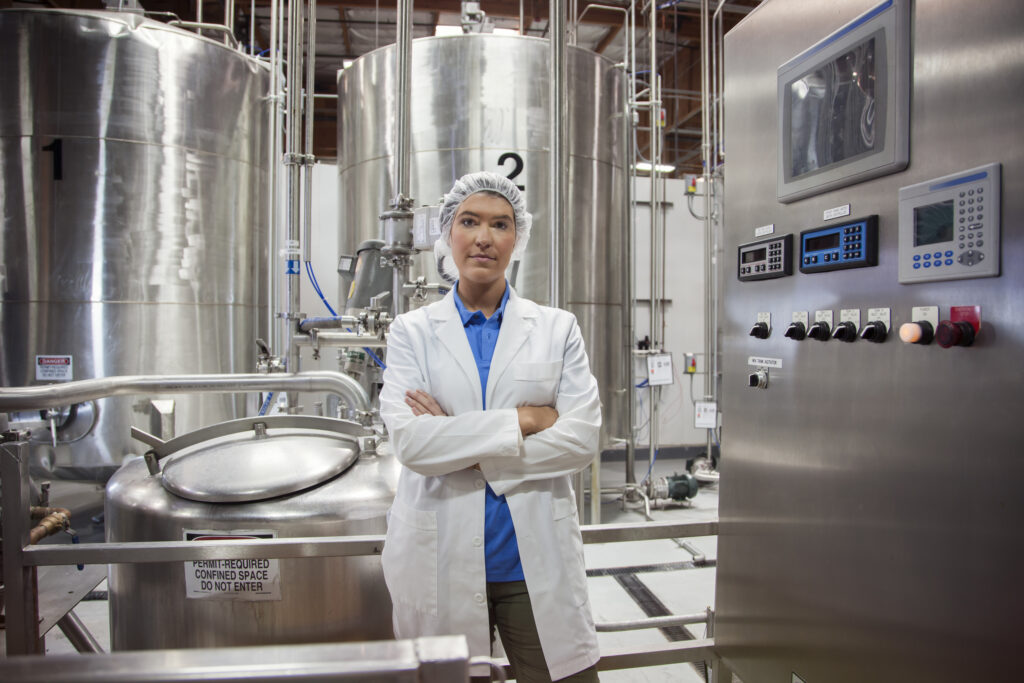A new precision fermentation study, published in the journal Current Opinion in Biotechnology, provides compelling evidence that this technology could be the key to future food sustainability. This innovative approach not only enhances the quality and flavor of our food but also plays a crucial role in ensuring food safety and sustainability. Let’s dive into how precision fermentation is setting the stage for a revolution in the food industry.
Enhancing Food Quality and Flavor
One of the core findings of the precision fermentation study is its potential to drastically improve food quality. By genetically editing microorganisms, scientists can now manipulate the metabolic pathways to produce foods with desirable properties. This means we can have fermented foods with improved flavors and nutritional content, meeting consumer demand for tastier and healthier options.
Moreover, this technology allows for the production of specific food ingredients, including those that contribute to the savory taste in dishes, sourness in soft drinks and essential enzymes in cheese manufacturing. Precision fermentation ensures that these ingredients are produced economically and sustainably, making it a game-changer in the food industry.
Related: 5 Food Companies Working With Precision Fermentation Technology
Ensuring Food Safety
Food safety is a paramount concern in the food industry, aiming to reduce both immediate and long-term health risks. The precision fermentation study highlights how genetically engineered microorganisms can inhibit the growth of foodborne pathogens. This not only extends the shelf life of foods but also ensures they are safer for consumption. Through the strategic manipulation of microorganisms, precision fermentation offers a promising solution to some of the pressing safety issues in food production.
Contributing to Sustainability
The sustainability of food production is a growing concern, especially with the anticipated increase in global population and food demand. The precision fermentation study underscores the role of this technology in promoting sustainability.
By using self-replicating microorganisms that produce minimal waste, precision fermentation paves the way for the production of food ingredients from renewable substrates. This approach aligns with the increasing consumer demand for sustainably sourced food products, highlighting precision fermentation’s potential to contribute significantly to environmental conservation.
XTALKS WEBINAR: Drainage Solutions to Enhance Product Safety for the F&B and Pharma Industries
Live and On-Demand: Thursday, April 25, 2024, at 1pm EDT (10am PDT)
Register for this free webinar to learn about the importance of hygienic drainage solutions in maintaining optimal hygiene within facilities.
Overcoming Challenges
Despite the numerous benefits, the precision fermentation industry faces challenges, particularly in consumer perception. Words like “bioengineered” and “genetically modified” often provoke negative reactions. The study proposes a new system for categorizing genetically engineered products to improve public perception and acceptance. It’s crucial for the industry to work towards demystifying these technologies and highlighting their benefits for the food system and the environment.
Real-World Applications of Precision Fermentation
Precision fermentation is at the forefront of creating alternative proteins and dairy products, providing solutions for vegetarians, vegans and those with dairy allergies. It allows for the production of animal-free dairy proteins, such as casein and whey, which are identical to their cow-produced counterparts. These proteins can then be used to make cheese, yogurt and other dairy products without animals, reducing environmental impact and enhancing animal welfare.
Precision fermentation also plays a critical role in the nutritional supplement industry. It is used to produce vitamins, amino acids and other essential nutrients with higher purity and lower production costs compared to traditional extraction methods. This not only makes nutritional supplements more accessible but also ensures they are produced in a more sustainable and environmentally friendly manner.
Many food tech companies are leveraging precision fermentation including Perfect Day, Geltor, Impossible Foods and Motif FoodWorks. As technology advances and consumer acceptance grows, the impact of precision fermentation is expected to expand, leading to more sustainable and ethical food production practices worldwide.
The precision fermentation study offers a glimpse into the future of food production, emphasizing its potential to enhance food quality, safety and sustainability. By leveraging genome-edited microorganisms, this technology can produce fermented foods and ingredients more efficiently and sustainably.
Although challenges exist, particularly in consumer acceptance, the continued growth and development of the precision fermentation industry are essential for a sustainable and resilient food supply. As we move forward, it will be exciting to see how precision fermentation continues to transform the food industry, making it better for consumers and the planet alike.
If you want your company to be featured on Xtalks.com, please email [email protected].












Join or login to leave a comment
JOIN LOGIN